-
•
•
31 responses
Part of my job as a law professor is to model to students what a transactional attorney does. As part of that, I include in my syllabus a list of things media that they ought to consume in order to understand the world a business lawyer functions in. The list is not exhaustive, by any means, nor should they necessarily read or listen to all of it, but it provides a slice of intelligent commentary on the world I’m teaching them how to enter. If you were preparing people to do what you do, what resources would you recommend? [fn1]… Read More
-
•
•
4 responses
Times & Seasons is excited to introduce Sam Brunson as our latest guest blogger. Sam grew up in the suburbs of San Diego and served a Brazilian mission what seems like a millennium ago. He went to BYU as an undergrad and found that a freshman saxophone performance major made his eventual English major look like a practical choice. After toying with teaching critical theory or becoming an author, he did what all good English majors do and chose law school. At Columbia, he met his wife, got a degree, and got a job as a tax associate at… Read More
-
•
•
58 responses
Yesterday in the Sacrament Meeting I attended, we closed singing the Star Spangled Banner (I managed to suppress the urge to yell “Play Ball” at the end). While going through the typical sacrament meeting in the U.S. before the July 4th Independence Day holiday, I couldn’t help thinking about what role patriotism should play in my life. Read More
-
•
•
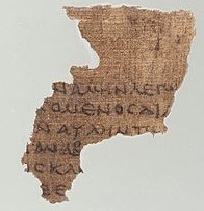
As important as the events in the Garden of Gethsemane were, they receive very little attention in scripture. Matthew has 11 verses on it, Mark also has 11, Luke has 7, John tells us nothing about it at all, though he was as close as anyone to what happened. The Doctrine and Covenants has 4 verses about it and the Book of Mormon 1. Why do you think the scriptures are relatively silent about such an important event? Does that tell us anything about how we should understand what scripture is or is not? Here is a link to a… Read More
-
•
•
15 responses
Last week I began a series of posts that will examine Handbook 2, the policy handbook that the Church put online last Fall. Since so many local leaders are urged to read and study the handbook as part of their callings, I hoped to provide an interesting forum to do that. Chapter 1 of the Handbook is an overview that tries (I believe) to put the Handbook’s policies in procedures in the context of the plan of salvation. I encourage you to read the chapter before commenting, since you may have more topics to discuss: Read More
-
•
•
9 responses
I grew up in the Washington DC area, and fondly remember driving on the capitol beltway from the east toward the Temple and seeing the “Surrender Dorothy” graffiti on a railroad bridge, soon after the Temple had appeared to rise from the ground in front of me. I’ve regularly laughed at the sly commentary on the Temple’s architectural similarity to the Emerald City of the Wizard of Oz. Yesterday, the Washington Post’s answerman ran the above photo and asked for information about who the graffiti artist was and why he risked life and limb to repeatedly make this statement. I… Read More
-
•
•
39 responses

So, is “oh my heck” really a Mormon term? If you hear someone use it, can you assume that they are Mormon? Do Mormons use it more than others? And where did it come from anyway? [I apologize to anyone offended by the use of profanity in this post. I’ve only used it when necessary. But I have not made any attempt to disguise or shield users from it.] Read More
-
•
•
29 responses
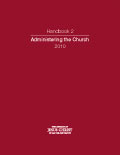
After the Church posted the text of the 2nd volume of its administrative handbook (formerly known as the Church Handbook of Instructions—CHI) last fall, a few bloggers looked at the handbook, including our own Dave Banack. Read More
-
•
•
33 responses
I enjoyed Alison’s post from a couple of weeks ago, Does Gender Matter?, but I’m a little confused how the pieces fit together. The post appears to accept the nonscriptural, uncanonized Proclamation at face value, stating: “Gender is part of who we are and who we have always been. It is important. It matters.” That makes it difficult to argue for reform of what is identified as a problem: “The church uses gender to delineate authority, callings, and roles.” However, there is a different way to see the issue. Read More
-
•
•
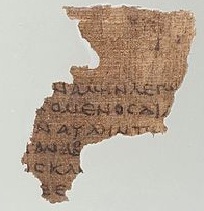
Remember: though these may be useful in helping a person to prepare a Sunday School lesson, they are intended primarily to help one study and prepare for taking part in Sunday School. That’s why you’ll find questions with no answers; they are study questions. John 16 Verses 1-3: In verse 1 Jesus tells the disciples that he taught them what he did in chapter 15 so that they would not be “offended.” A more literal translation might be “caused to stumble,”“scandalized.” In Matthew 26:31 Jesus tells the disciples that they will be offended or scandalized by him that night. What… Read More
-
•
•
14 responses

Yesterday’s priesthood lesson opened with what turned out to be a provocative question: How do you measure obedience? How do we know when we are being obedient?And, perhaps most difficult, how do we know that we aren’t fooling ourselves? Read More
-
•
•
8 responses
Times & Seasons is excited to introduce Brad Strum as a guest blogger. Brad lives and works in the DC area as an economist, where he has been since earning a Ph.D. in economics at Princeton University. Before grad school, he served in the Russia, Rostov-na-Donu mission and attended Brigham Young University, earning undergraduate degrees in economics and mathematics. Going back even further, Brad grew up in a military family, living in a number of places around the U.S. When he isn’t working, Brad enjoys many activities, including tennis, biking, dancing, reading, discussion groups, and spending time with family and… Read More
-
•
•
8 responses

Last week Major League Baseball held its most important annual draft, indicating interest in more than 1,500 possible players. As far as I can tell, just two of them are Mormon, down from 6 last year. Read More
-
•
•
20 responses

When I was on vacation a few years ago I picked up a local paper and found a number of articles about the problems that area was facing because of illegal immigration. Predictably there was crime committed by the illegal immigrants, and a lot of hate towards them. For an American nothing there was unusual–except that I was in South Africa. Read More
-
•
•
80 responses
Karl Giberson’s Saving Darwin: How to Be a Christian and Believe in Evolution (HarperOne, 2008) relates Giberson’s journey from fundamentalist Christian student to still-believing but no longer fundamentalist physicist. Chapter 5 of the book critiques the sources of Young Earth Creationism (YEC), primarily George McCready Price’s The New Geology, published in 1923, and Whitcomb and Morris’s The Genesis Flood, published in 1961. As Price’s book is also a source for LDS YEC beliefs — which for some bizarre reason still seem to guide Correlation in approving statements made in LDS publications — the chapter seems particularly helpful for Latter-day Saints… Read More
-
•
•
46 responses
At the end of a recent White House meeting with a Mormon focus group White House officials asked an illuminating question: Who are the LDS Community leaders that the White House should try to recognize? Read More
-
•
•
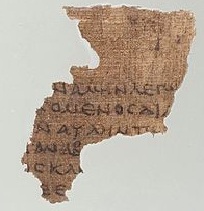
Getting caught up (as you can see). With this lesson we begin to read about the part of Christ’s life that is traditionally called “the Passion,” the time between the Last Supper and his death on the cross. The word “passion” and the word “passive” are related terms. Why is this part of Jesus’ life called the Passion? The longest part of each of the New Testament gospels is the part describing the Passion. As Latter-day Saints, our tendency is to focus on the resurrection rather than the Passion. Why do you think the gospels give so much attention to… Read More
-
•
•
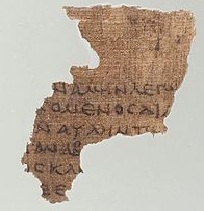
Verses 1-13: The Parable of the Ten Virgins How does the parable relate to that given in Matthew 24:45-51? We know little about marriage ceremonies in Palestine during Jesus’ day. Indeed, we can assume that the customs varied from one place to another in Palestine, making it even more difficult to recover them. Most of what we say about such things is really a description of customs 200 years or more later. Perhaps those later customs reflect what happened in Jesus’ day, but we cannot know that they did, and the tremendous social upheaval resulting from the destruction of the… Read More
-
•
•

It is sometimes helpful to have the Joseph Smith revision (JST) and the King James translation side-by-side, so I have put both versions of chapter 24 together in a PDF file for those who would like to use it. Traditional Christianity finds this chapter ambiguous: in some ways it seems to refer to the destruction of Jerusalem that occurred in 70 A.D.; in some ways it seems to refer to the Second Coming. It seems to me that Joseph Smith makes it more clear which passages refer to the destruction of Jerusalem and which refer to the Second Coming. You… Read More
-
•
•
19 responses
I am guessing many readers have already stumbled across a controversial opinion piece posted at Patheos last week, Warren Cole Smith’s “A Vote for Romney Is a Vote for the LDS Church.” Smith is the author of the book A Lover’s Quarrel With the Evangelical Church, so it is clear where he is coming from. In fairness to Patheos, it should be noted that the article was part of an online symposium on faith and social conservatism offering a variety of viewpoints, including “Yes, Christians Can Vote for Mormons,” “In Defense of Mormons,” and Nate Oman’s “The LDS Church Walks… Read More
-
•
•
37 responses

Yesterday in priesthood we discussed President Monson’s October 2010 Conference address on the Three Rs of Choice. One of the three Rs is ‘Responsibility’ — which led, of course, to discussing personal responsibility. In the discussion it occurred to me that personal responsibility is very closely connected to community responsibility. Read More
-
•
•
33 responses
I recently breezed through a short book by Herman Wouk (author of the Pulitzer Prize-winning novel The Caine Mutiny) titled The Language God Talks: On Science and Religion (Little, Brown and Co., 2010). The book has the virtues of being short, entertaining, and informative as it recounts the author’s quest to relate his deep religious and cultural attachment to Judaism to his equally firm attachment to a scientific worldview. That’s the sort of quest many people in the 21st century are engaged in at one time or another. Read More
-
•
•
61 responses

Last week the Pinal Arizona County Attorney decided not to charge two LDS Bishops with failing to report the sexual abuse of a minor in the case of LDS Church member Susan Brock, who is now serving a 13-year prison sentence for the crime. While I tend to agree with the county attorney’s position on the bishops, I have to ask the question, who should have reported the crime and when? Read More
-
•
•
8 responses

I was saddened to hear today that a central part of one of my fondest childhood memories is no longer here. Baseball great Harmon Killebrew died this morning following a six month battle with cancer. He was 74. Read More
-
•
•
33 responses

A decade ago I compiled a list of the world’s wealthiest Mormons, based on the annual Forbes lists of the World’s Billionaires and of the 400 Wealthiest Americans. At that time there were 7 on the list, down from 8 the previous year. Now only 4 of these are left on the list. If there are fewer Mormons on the list of the World’s Wealthiest, I think it might be a good thing. Read More
-
•
•

Matthew 21 Verses 1-7: The end of verse 3 could also be translated “and straightway he will return them.” Verse 5 puts two scriptures together, Isaiah 62:11 and Zechariah 9:9 (as they appear in the Greek rather than the Hebrew version of the Old Testament). What does “daughter of Sion” mean? Why is it important that the Lord enter Jerusalem on the back of a donkey (rather than a horse, for example)? Verses 8-11: Why did the people put their cloaks and branches from the trees on the road in front of Jesus? “Hosanna” means “save, we pray.” Do you… Read More
-
•
•
16 responses

In the first talk given during the Priesthood session of this past General Conference, Elder Neil L. Andersen told the story of New Zealand rugby player Sid Going, who, in 1962, was poised to become a major Rugby star. But Going instead chose to serve an LDS mission, and became a star anyway when he returned two years later. Now, less than six weeks after Conference, Australian LDS Church member Will Hopoate has chosen to follow Going’s example, forgoing interest from 6 teams and at least one offer worth USD $1.6 million. Read More
-
•
•
69 responses
Sometimes technology changes everything. First came writing, then television, now the Internet: Instant global publishing by just about anyone on the planet. You. Me. The guy who just got called in for a chat with his stake president. Read More
-
•
•
9 responses
Zion is the world ajar. Zion is the world set on a double hinge. God gives a push, the door goes swinging, and the world opens wide. Read More
-
•
•

Luke 18 Verses 1-8: The chapter division here (an artificial division not in the original text) makes us not see the connection between the end of Luke 17 and the beginning of 18. Might Luke have any particular prayers in mind in verse 1? How about the desire mentioned in Luke 17:22? In verse 1, Luke tells us the teaching of the parable before he gives the parable. Why? After reading the parable ask yourself whether there are other ways to read it, perhaps ways that Luke wants to forestall. We will later see that Paul particularly likes the language… Read More
